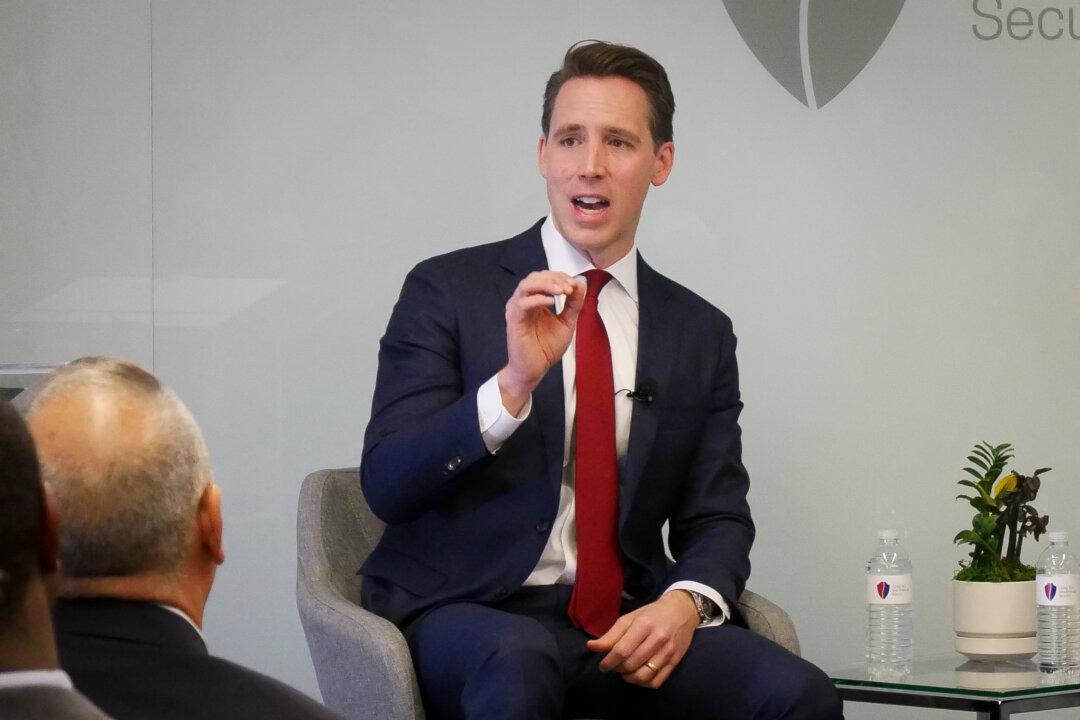WASHINGTON—Sen. Josh Hawley (R-Mo.) said on Nov. 12 that the situation in Hong Kong displays Beijing’s real intention, which is to push the United States out of the Indo-Pacific region, and that current U.S. foreign policy is inadequate to address the “dangers at hand.”
Speaking at the Center for a New American Security, a bipartisan think tank, Hawley called for a change in foreign policy approach in light of a new era of competition with China.





